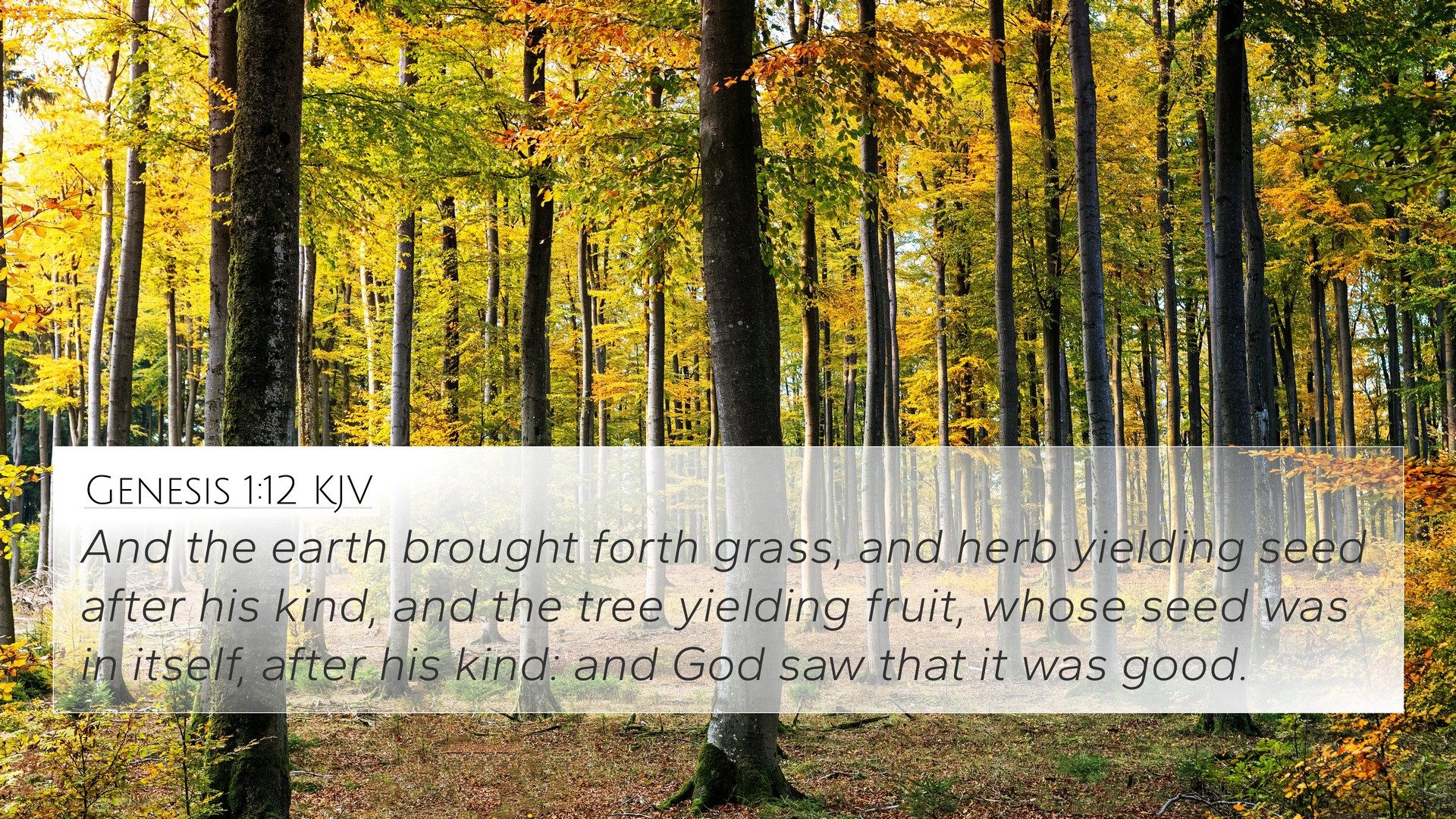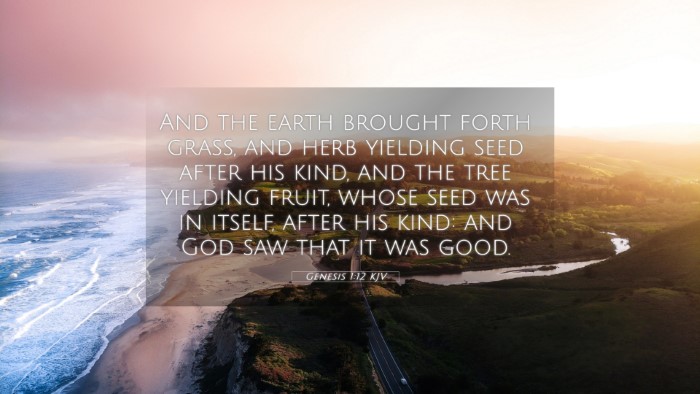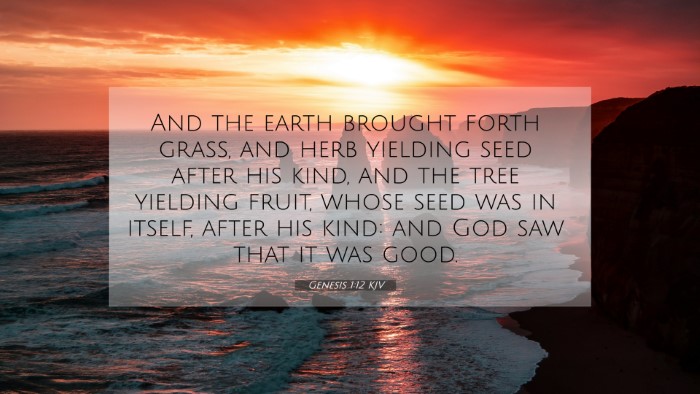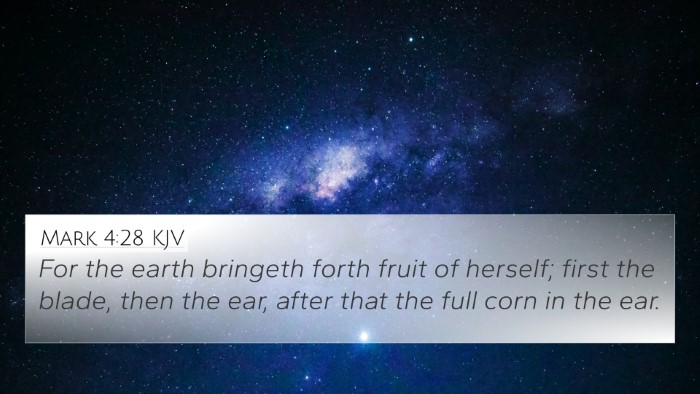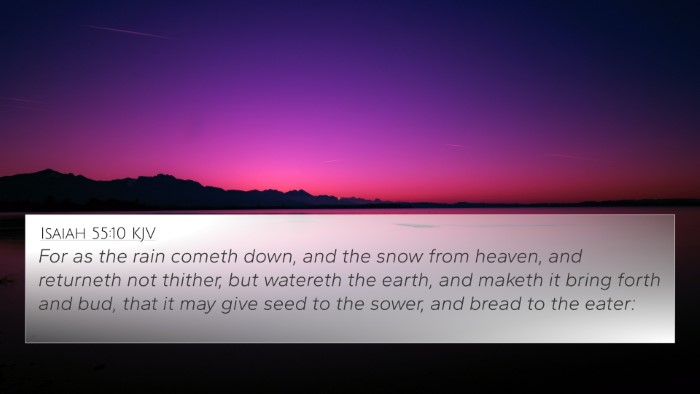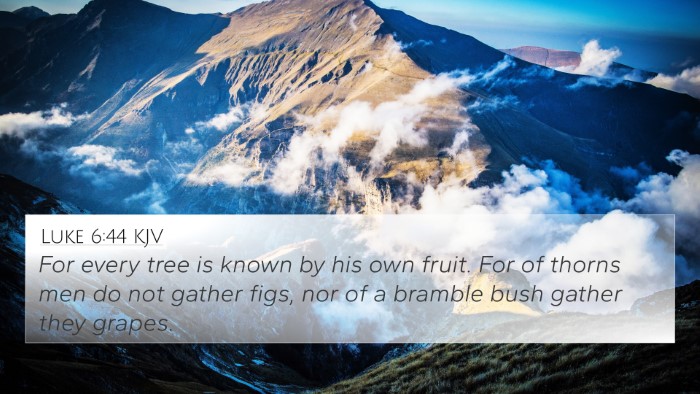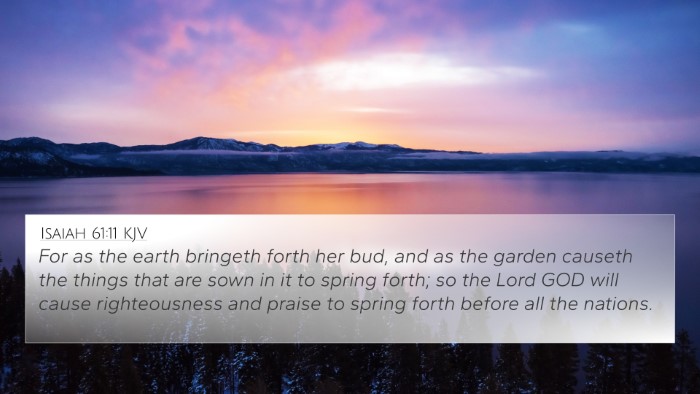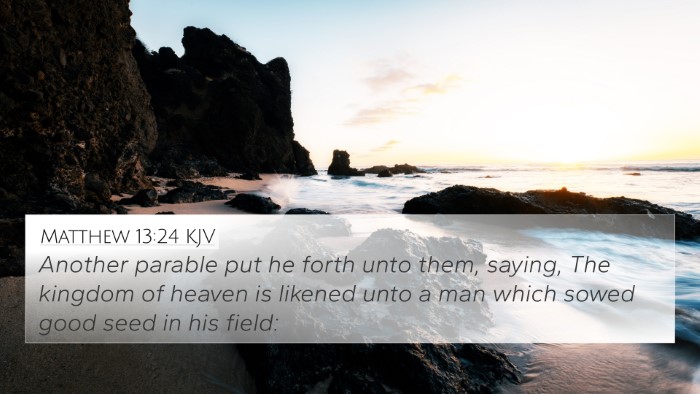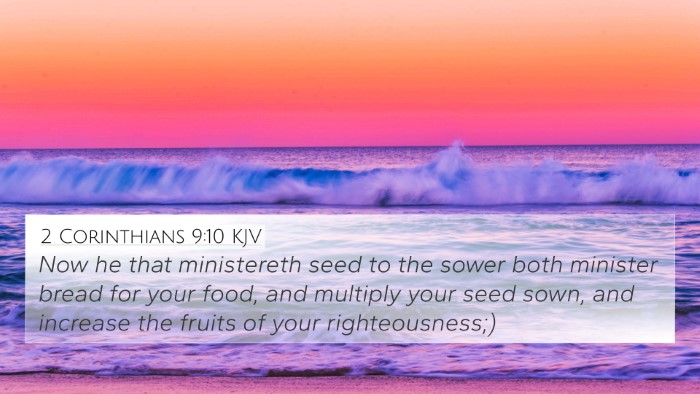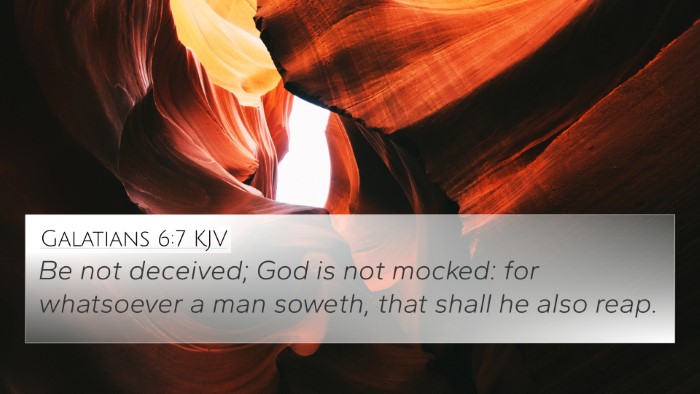Understanding Genesis 1:12
Genesis 1:12 states:
"And the earth brought forth grass, and herb yielding seed after his kind, and the trees yielding fruit, whose seed was in itself, after his kind. And God saw that it was good."
This verse is pivotal as it details God's creative process during the third day of creation, illustrating the divine order and purpose in nature.
Summary of Interpretations
Matthew Henry's Commentary:
Henry emphasizes the power of God's word in creation. The earth bringing forth vegetation is not random; it reflects God's will and purpose. The phrase 'after his kind' stresses the concept of order in creation, indicating that God designed plant life to reproduce within specific kinds, which signifies His authority over life.
Albert Barnes' Notes:
Barnes elaborates on the various forms of plant life created, noting the distinction between grass, herbs, and trees. He points out that the creation of these plants demonstrates God's concern for sustaining life, as they serve as nourishment for living creatures. The passage suggests a harmony in the ecosystem established by God, vital for life on earth.
Adam Clarke's Commentary:
Clarke highlights the importance of seed within the fruit. He notes that God’s creative action was not just a one-time act but a provision for continual life through seed reproduction. This illustrates a principle of continuity and sustenance vital for the earth’s ecosystem.
Key Themes and Insights
- Divine Order: The repetitive structure of "after his kind" portrays God’s use of systematic order in creation.
- Provision for Life: The creation of vegetation is a direct provision by God for nourishment, showcasing His care for all living beings.
- Role of Seed: The idea that trees yielding fruit with seed indicates a mechanism for growth and perpetuation of life, essential in understanding creation.
Cross-References to Genesis 1:12
Genesis 1:12 relates closely to various other scripture passages. Here are several biblical references that mirror or enhance the themes presented in this verse:
- Genesis 1:11: "And God said, Let the earth bring forth grass..." - This verse introduces the creation of plant life.
- Genesis 1:29: "And God said, Behold, I have given you every herb bearing seed..." - This emphasizes provision for human sustenance through creation.
- Psalm 104:14: "He causeth the grass to grow for the cattle..." - Reflects the ongoing care of God for creation.
- Isaiah 55:10-11: "For as the rain cometh down... so shall my word be that goeth forth out of my mouth..." - Highlights the nurturing aspect of God’s word likened to nature’s cycle.
- Matthew 6:28-30: "Consider the lilies of the field, how they grow..." - Jesus refers to God’s provision in nature, echoing the themes in Genesis.
- James 3:12: "Can the fig tree, my brethren, bear olive berries?" - Acknowledges that each tree produces after its kind, reinforcing the biblical principle of creation.
- Revelation 22:2: "In the midst of the street of it, and on either side of the river, was there the tree of life..." - Suggests the ultimate purpose of fruits and trees echoing back to creation.
Conclusion
Genesis 1:12 provides profound insight into creation's order and God's continual sustenance of life through His creative word. The echoed themes across various scriptures cement the understanding that the natural world is not just a backdrop but a testament to God’s intentional design for life. Through examining inter-Biblical dialogues and thematic connections, one can gain a deeper appreciation for the interconnectedness of the Scriptures.
